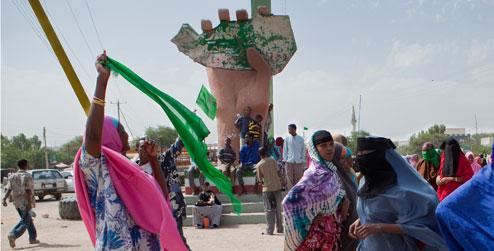- Somaliland will need to overcome several obstacles if it is to successfully hold local elections this year, according to a new report from Progressio. The report (below) says that obstacles to credible elections include a high level of complexity in the planned process, and recent challenges to press freedom.
However, the delay in holding the elections - originally planned for April and now scheduled for November 2012 - means that improvements could be put in place before the elections if the political will is there to do so, says the report.
Progressio's Steve Kibble, who co-authored the report with Michael Walls, says: "These elections are a crucial test for the democratisation process in Somaliland. If they go well, they could increase local accountability and give the poeple of Somaliland more ownership of the political process.
"We hope that this report will help all involved to focus on working together to overcome the challenges and ensure that the elections are a success."
The report is based on pre-election assessment visits to Somaliland by Steve Kibble in February/March and Michael Walls in July. It concludes that free and fair elections are achievable but considerable preparatory work is still required.
Issues include the logistical difficulty of running the elections with an 'open list' - which could mean upwards of 200 candidates in Hargeisa District alone, leading to long ballot papers, potential time delays in the voting process, and problems in counting and verifying votes.
The lack of a robust voter registration system could also lead to issues such as multiple voting.
There are also concerns about the process of assessing new 'political associations', which are vying to join the three existing authorised political parties and so be able to participate in the elections.
According to the report, there is "the potential for six political assocations to join the three existing political parties to contest the elections, and for each of those nine parties/associations to stand a candidate in every seat".
Recent and continuing challenges to press freedom also pose a barrier to legitimate elections, and there are worries that recent gains in promoting women's involvement in democratic processes could be undermined by the 'open list' system.
Despite highlighting these concerns, the report makes recommendations and suggestions for improvements by a number of key players, including the government of Somaliland, the National Electoral Commission (NEC), political parties and associations, civil society organisations, and the international community including donors.
Michael Walls says: "Our hope is that this report will help encourage all concerned to pull together and ensure that these elections become another significant milestone in Somaliland's progress towards democratic accountability."

No comments:
Post a Comment